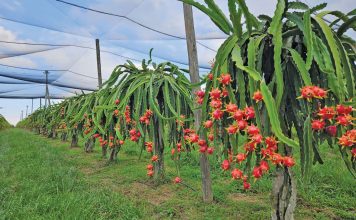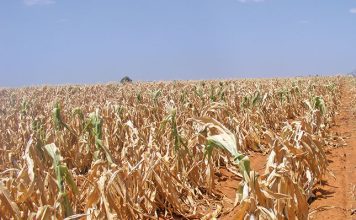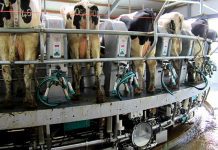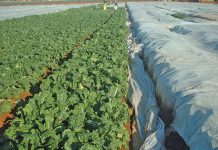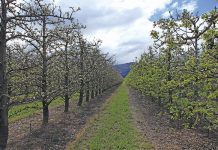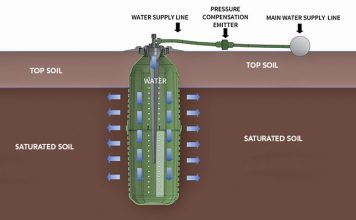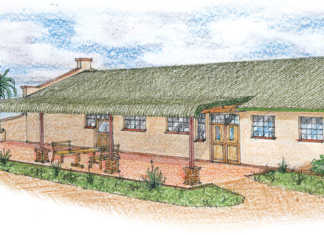Most Popular
Clinton du Preez has approximately 600 chickens of various breeds neatly housed in the backyard of his Stutterheim home in...
Choosing a breed to farm depends on various factors, including the environment in which you plan to farm. Janine Ryan...
Sidebone in horses: is it unsoundness?
Sidebone is the ossification of the collateral cartilages. It is found mainly in the hooves of heavy Warmbloods, writes Dr Mac.
How wildlife vets play a vital role in advancing conservation
Besides treating animals that live in the wild for diseases and injuries, wildlife veterinarians such as Dr Johan Marais also assist in introducing animals to new sanctuaries and doing genetic...
Young sheep farmer builds thriving business despite challenges
Luvo Kiyane is not only at the helm of a profitable livestock initiative on a shared state land reform farm in the Elliot district of the Eastern Cape, but also...
Trying to tip the scales in favour of further protection for pangolin
Brian Berkman asks Tswalu Foundation researcher Daniel Rossouw why his study into the positive impact of the pangolin matters and what he’ll learn from it.
Challenges and opportunities expected for dairy production
The US Department of Agriculture recently released its latest report on dairy production in the US, Europe, Australia and New Zealand, and the trends driving trading.
From a DJ to a successful farmer in the Eastern Cape
Lubabalo Ngcwembe (43), from Zwelitsha near Qonce, shares his remarkable journey into farming, overcoming challenges to build Ikhasilethu, a thriving livestock and vegetable enterprise.
Blueberries: Each growing area has its own unique challenges
While South African blueberry production is showing double-digit growth, savvy growers warn that first testing the appropriate variety selection for each production area is essential, writes Brian Berkman.
Managing a Swiss chard crop for a high, ongoing yield
This leafy vegetable is a voracious feeder that requires plenty of nitrogen, and must be protected from frost and eelworm, says Bill Kerr.
Hlobi Yende, the young farmer transforming her family farm
Hlobi Yende is part of a new generation of young, energetic female farmers making waves in the agriculture sector. She is leading the charge by defying stereotypes and creating an...
Carrot irrigation should be different
A carrot plant’s fine roots can reach up to 2m deep. Most farmers do not exploit this potential and irrigate more or less the same as they do for other...
Getting the best out of pear orchards
GA Erasmus en Seuns Boerdery in the Western Cape Overberg won the award for the best income per hectare for pears at Two-a-Day Awards Ceremony in 2023. George Erasmus and...
Sunflower production: threatened by stink bugs and fungi
With continuous management of the insects that predate on sunflowers, significant success can be attained with this crop, which is suited to growing in the drier parts of South Africa,...
This guide unlocks the secrets to successful pig farming. Learn how to feed your pigs for optimal growth, avoid costly...
The types of grasses or shrubs that grow on any particular piece of veld will give you an idea of...
For Cynthia Sekgobela, retirement in 2016 brought a bold new beginning. After 21 years as an accountant and tax consultant,...
When it comes to protecting your irrigation system, few things are more important than effective filtration. The correct choice of...
Thaba Chweu Municipal property rates court case explained
Len Dekker, senior director at law firm Len Dekker Attorneys, breaks down the recent Supreme Court of Appeal judgment that may be of interest to farmers.
Farm shop with food and entertainment
Jonno designs a farm shop that includes a shisa nyama/braai area; an entertainment hall/restaurant, a car wash and filling station.
A tranquil retreat in the heart of the Swartberg Mountains
Brian Berkman is thoroughly charmed by a nature reserve and its hospitality in the Klein Karoo. Wildehondekloof Private Game Reserve is about 60km outside of Oudtshoorn in the Western Cape...
Spanish tortilla with chorizo, potato and Sweet Palermo
Here, we have a Spanish Sweet Palermo tortilla for you. Although it might seem easy, cooking a good tortilla actually takes a bit of experience. But don’t let that stop...
Espresso chocolate brownies
These delicious brownies can be enjoyed on their own, or with cream and ice cream. Make sure you make a double batch; your guests will be coming back for seconds,...
Easy vanilla panna cotta with white chocolate
While this panna cotta may look daunting, it is actually a very easy recipe that will impress friends and family, says Lorraine Steyl.
Lamb shank parcels
These lamb shank parcels are perfect for a Christmas dinner. They are not only delicious but they look the part too, says Lorraine Steyl.
Butter chicken with peaches
The star of this dish is the creamy and spicy sauce, says Lorraine Steyl.

